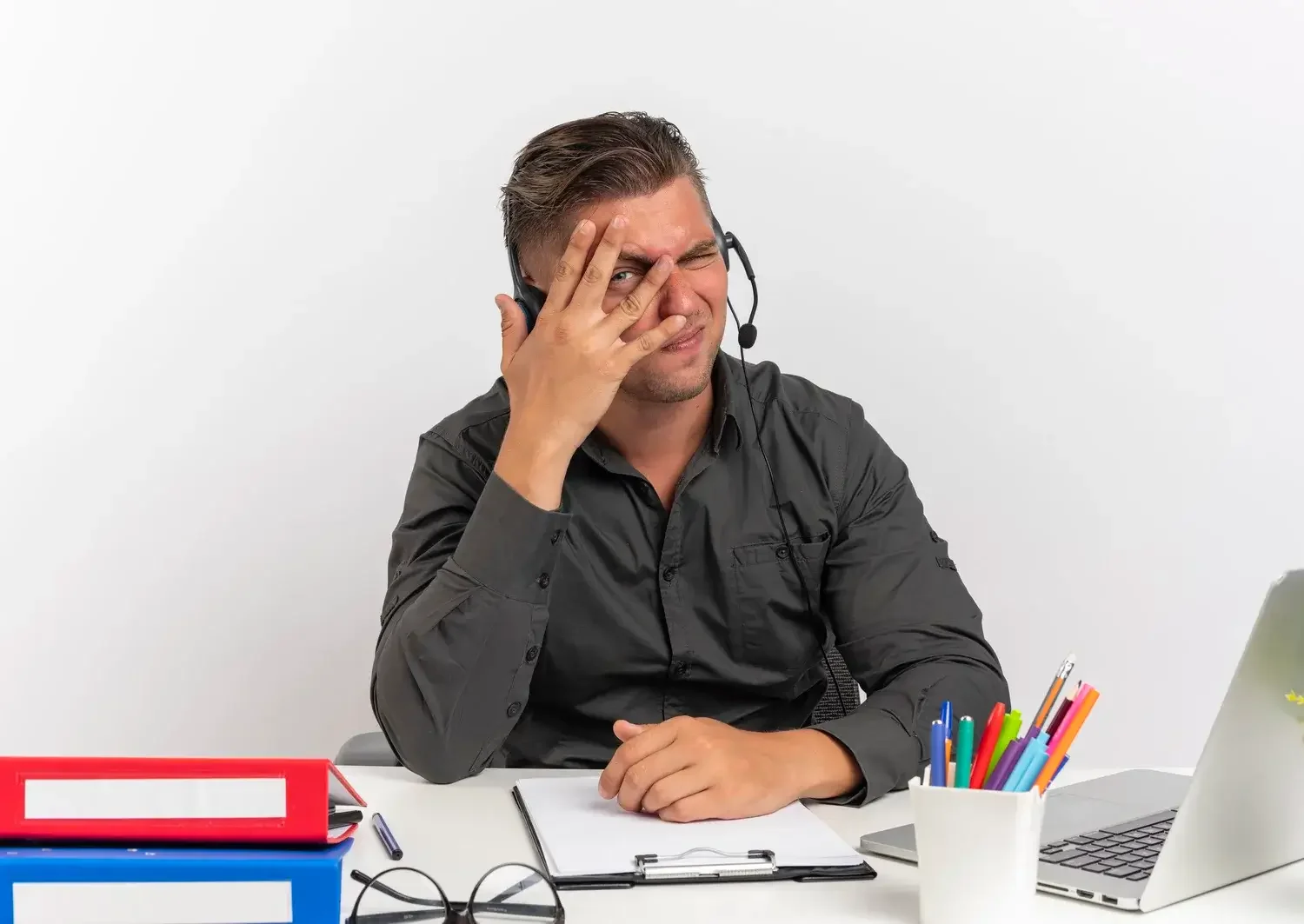Can You Develop ADHD as an Adult? Signs, Causes, and What to Know
For years, ADHD was painted as a condition that only affected hyper little boys who couldn’t sit still. That image stuck for decades, and many adults (especially women) grew up believing that if they didn’t fit that picture, ADHD simply didn’t apply to them.
But lately, I’ve been hearing more people quietly ask, “Can you develop ADHD as an adult?” They talk about struggling to stay focused, losing track of time, or feeling like their minds are always running a few beats too fast.
If this sounds like you, please know you’re not alone. ADHD can look very different in adults, and the truth is, it often hides in plain sight for years before anyone realizes what’s going on.
Can ADHD Really Start in Adulthood?
Here’s the honest answer: ADHD doesn’t suddenly appear out of nowhere in adulthood. But that doesn’t mean it can’t feel like it does. So many of my clients ask, “Is it possible to get ADHD later in life? ” or “Can ADHD develop in adulthood? ” The truth is, ADHD is a neurodevelopmental condition that begins in childhood; it just isn’t always recognized early.
According to Medical News Today’s article “Can You Develop ADHD as an Adult?”, emerging evidence suggests that adult-onset ADHD may be distinct from childhood ADHD, with studies showing that it could affect 2.5–5% of adults. Interestingly, fewer than 20% of adults with ADHD ever receive a diagnosis or treatment, and up to 22% of those seeking help for other mental health conditions later learn they have ADHD. These findings highlight that while ADHD may not start in adulthood, it can often surface or become noticeable later, especially as life’s demands outpace old coping mechanisms.
You may have been that quiet daydreamer in school or the student who worked twice as hard to stay organized. You could have procrastinated on every assignment like me but always pulled it off with good grades at the last second because you were smart. Maybe you found clever ways to cope: planners, sticky notes, and last-minute bursts of productivity, and those strategies carried you for years. But then life got busier and more demanding, and suddenly everything started slipping. That’s when many people begin to ask, “Can you develop ADHD in your 30s? ” or “Can you develop ADHD later in life? ”
The symptoms didn’t just appear. They became impossible to ignore.
Why ADHD Often Goes Undiagnosed for So Long
If you’ve spent years blaming yourself for being “lazy,” “scatterbrained,” or “bad at time management,” please take a deep breath; this isn’t a character flaw. It’s how ADHD often hides.
Most research for decades focused on how ADHD presents in boys, so adults were left out of the picture. The “typical” symptoms, like hyperactivity or constant movement, don’t always show up the same way later in life. And many people have what is known as “inattentive” ADHD, which does not look hyper at all.
For adults, ADHD can look quieter but heavier:
You start tasks but rarely finish them.
You lose track of conversations or forget important dates.
You procrastinate until the pressure is unbearable and then rush to get it done.
Your mind always feels on, even when you’re exhausted.
You know exactly what you need to do next, but you just can’t start.
You always feel disorganized or messy, no matter how many systems you’ve tried.
You’re always misplacing your keys, your wallet, or your phone.
Over time, this constant mental juggling can leave you anxious, overwhelmed, and convinced that you’re failing at things that seem easy for others. That’s why so many adults finally ask, “Can you develop ADHD as an adult? ” when in reality, it’s been part of their story all along.
What Triggers ADHD Symptoms in Adults
Life transitions can bring buried ADHD symptoms to the surface. New responsibilities, changing hormones, or increased stress can stretch coping skills thin.
I’ve seen this happen during:
Career changes or job promotions
Becoming a parent
Going back to school
Entering perimenopause or menopause
Suddenly, what once felt manageable becomes overwhelming. You forget appointments, struggle to focus, and feel like your brain is working against you.
If you’ve ever asked, “Is it possible to develop ADHD later in life?” after one of these transitions, it’s not that you suddenly got ADHD, but that life started asking more of your executive functioning than ever before, and your old coping skills just don’t cut it anymore.
What Adult ADHD Can Feel Like Day-to-Day
Living with undiagnosed ADHD often feels like your brain is a browser with 25 tabs open and you can’t remember where the music is coming from.
You might:
Lose your keys daily, even when you just had them.
Sit down to pay one bill and somehow reorganize your entire desk instead.
Feel guilty for “wasting time,” even when you’re mentally exhausted.
Be amazing in a crisis but crumble under routine.
Feel constantly overwhelmed or anxious, like your brain is spinning out of control.
It’s not a lack of willpower; it’s how your brain is wired. And understanding that can shift your entire perspective from “What’s wrong with me? ” to “Oh, this makes sense now.”
How ADHD Can Affect Emotions
When people think of ADHD, they picture distraction. But one of the hardest parts for adults is emotional regulation, which is another one of our executive functions.
If you’ve felt “too sensitive” or like your emotions come in waves that you can’t control, that could be part of ADHD too.
Rejection can sting more deeply. Criticism can feel crushing. Excitement can feel like electricity. Frustration can be explosive.
For many adults, this emotional intensity is the reason they first seek help, not the focus issues. It’s also why ADHD is often mistaken for anxiety or mood disorders, because internalized hyperactivity can sound a whole lot like anxiety.
If this sounds familiar, please know it’s not about being “too emotional.” It’s your brain processing stimulation differently, and that can be worked with once you understand it.
The Mental Load and Burnout of Undiagnosed ADHD
ADHD doesn’t just affect focus; it affects how you feel about yourself.
Years of forgetting, rushing, apologizing, and “trying harder” can lead to chronic shame and burnout. Many adults with ADHD describe feeling like they’re constantly “behind,” even when they’re working nonstop.
This hidden exhaustion builds quietly. You might appear “high-functioning” on the outside, but inside, you’re drowning.
The good news? Recognizing it changes everything. Once you understand that ADHD is influencing your focus, memory, and energy, you can start to create systems that work for your brain instead of against it.
What Helps if You Think You Might Have ADHD
If you’re wondering if ADHD can develop in adulthood, or if you can develop ADHD later in life, the best next step is to get a professional evaluation and support.
Working with a therapist or coach who understands adult ADHD can make all the difference. Together, you can explore:
How your symptoms show up in daily life.
Strategies that support your focus, not fight it.
Ways to manage emotions and relationships more calmly.
Tools to organize tasks and reduce overwhelm.
And remember, treatment isn’t just about medication (though that can certainly help). Therapy, coaching, structure, mindfulness, and lifestyle support all play a role in helping you live more in sync with how your brain works.
Learning to Work With Your Brain, Not Against It
If you’ve been wondering whether what you’re feeling could be ADHD, you don’t have to figure it out alone.
I work with adults every day who are finally giving themselves permission to ask questions like this and finding peace on the other side of understanding.
If you’re ready to explore your focus, energy, and emotions with guidance instead of judgment, reaching out for support can be the first step.
One of my favorite moments in coaching is when a client finally says, “I thought I was lazy, but it was just ADHD.”
That realization often brings relief and even tears. It’s the moment shame turns into self-understanding.
So if you’ve been asking yourself, “Can you develop ADHD as an adult? ” take this as your sign to look closer, not with judgment, but with curiosity. Because the answer might help you see yourself with more compassion than ever before.
You deserve that clarity. And you deserve to feel capable again.
FAQs
What can trigger ADHD in adults?
Stress, major life transitions, hormonal shifts, and increasing responsibilities can make ADHD symptoms more noticeable. These changes often expose struggles that were easier to manage earlier in life.
How do you get diagnosed with ADHD as an adult?
A mental health professional or psychologist can evaluate your symptoms, history, and patterns. The process may include questionnaires, interviews, or reviewing past behaviors that point to ADHD.
How to beat ADHD as an adult?
ADHD can’t be “cured,” but it can be managed. Therapy, medication, coaching, and structure-based tools can help you thrive by aligning your routines with how your brain works best.
Can a person with ADHD have a normal life?
Absolutely. With understanding and support, adults with ADHD can lead fulfilling, organized, and joyful lives. The key is learning to work with your brain, not against it.
Is ADHD a neurological disorder?
Yes. ADHD affects the brain’s executive functions, things like focus, planning, memory, and impulse control, but it doesn’t define your potential.


